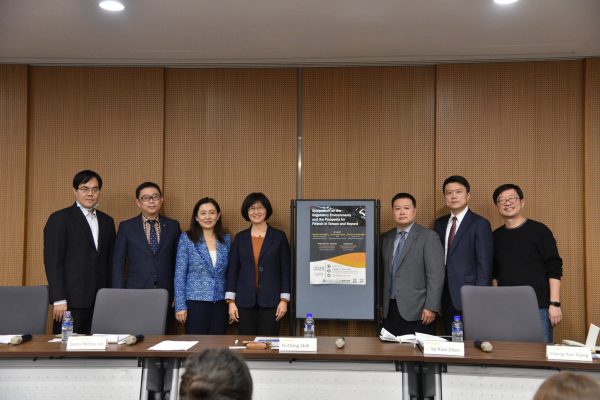1. Course Rational and Direction
The development of technology drives massive changes in global politics, economics, and society. The demand for talent in contemporary technological advancements is also highly dynamic due to the rapid pace of technological innovation. The “Data Analytics (DA)” course is designed on a rolling basis with contemporary technological innovations and social applications in mind, training talents that meet the needs of today’s technological and social development, thus further promoting technological and social innovation.
In recent years, the robust development of the Internet and advancements in recording and storage systems enabled the accumulation of a large amount of analyzable data. This rapid accumulation and vast amount of data analysis and application have become crucial drivers of technological innovation, corporate innovation, and social innovation across various fields.
The global need for interdisciplinary professionals driven by data analysis requires not only expertise in data science but also various social sciences domain knowledge. “Data Analytics” courses intend to cultivate students with both foundational and advanced knowledge in data science. Students shall concurrently study other specialized courses such as “Global Governance” or “Sustainability and Society” offered by the Innovative International College, training them to complete interdisciplinary data projects and learn how to learn by themselves. This approach enables them to perform various social data analysis applications in the most creative, accurate, and efficient manner while fostering reflective thinking and publicity mindsets.
2. Specialized Course Design
The “Data Analytics” course integrates basic, advanced social applications and interdisciplinarity. In the first and second years, courses, including Computer Programming, Introduction to AI, and Data Science, will be provided; these project-oriented courses require students to complete interdisciplinary data projects. In the third and fourth years, advanced courses such as machine learning, deep learning, business analytics, sustainability analysis, AI and ethics, AI and governance, innovative system design, databases, Innovation and Intellectual Property rights will be offered, along with practical and internship courses to cultivate professional collaboration skills before graduation.
| Year 1-1 | (CC) Economics I
(CC) Statistics I: R |
| Year 1-2 | (CC) Computational Programming I: Python
(CC) Statistics II: R (CC) Economics II |
| Year 2-1 | (RE) Introduction to AI |
| Year 2-2 | (RE) Data Science: R and Python
(IO) Data Visualization: Power BI and R |
| Year 3 | (IO) International Innovation Management
(RE) Machine Learning and AI: Python (IO) Innovative Information and Data Project Design (IO) AI and Governance (IO) Database Design and Management: MySQL |
| Year 4 | (IO) Business Data Analytics: R and Python
(IO) AI and Ethic (IO) Sustainable Development and Data Analytics: R (IO) Deep Learning |
Core Curriculum (CC), Required Electives (RE), and Issue Oriented (IO)










